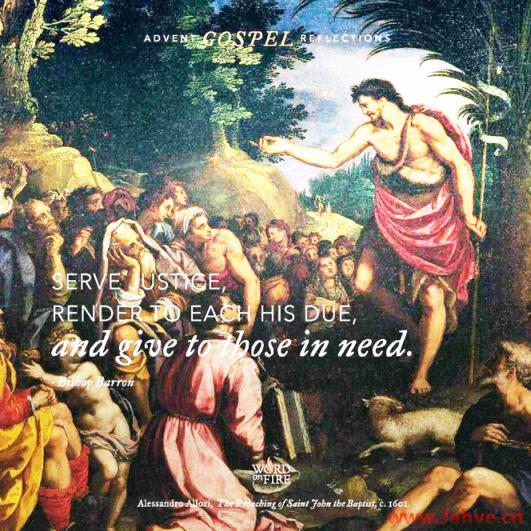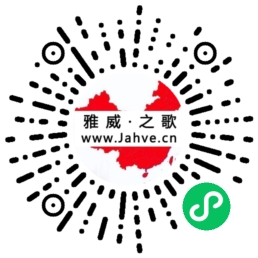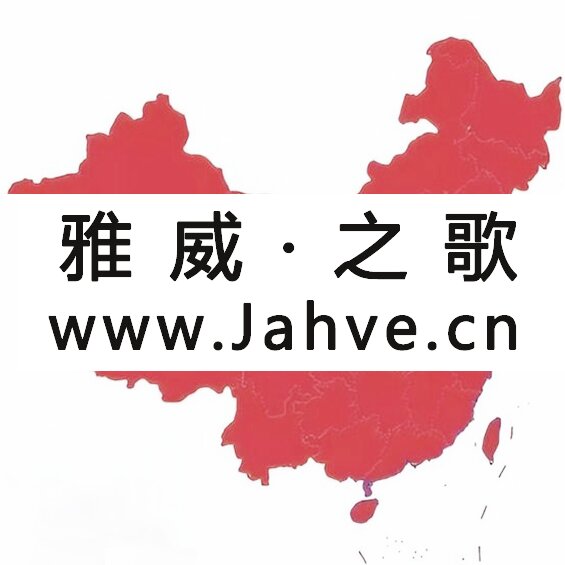 Bishop Barron翻译|Carrie2018-12-16
Bishop Barron翻译|Carrie2018-12-16 朋友们,就像洗者若翰时期的人们一样,我们问:“我们应该怎样做?”我们应该如何过活?当然,这个问题与悔改有关:悔改不是仅仅改变想法,还需要采取行动。灵修生活归根结底是一系列行为。那么洗者若翰告诉我们该怎么做?他的首个建议是:“有两件内衣的,要分给那没有的。”这是那么基本、重要——却几乎完全被人忽略!教会的社会教义一直提醒人们:虽然私人财产是社会福利,但我们必须根据社会需要来使用私人财产。早期教父该撒利亚的巴西流附和了洗者若翰:“你食橱里面包属于饥饿者。你衣柜里的衣服属于赤身裸体者。你闲放的鞋子属于赤脚者。你保险库里的钱财属于赤贫者。若你能帮助他人却袖手旁观,那就是不公平。”那么我们作为悔改的、守候救世主来临的这一群人在这个将临期该如何做?做正义的化身、公平对待每一个人并且扶贫济困。Friends, like those in the time of John the Baptist, we ask: "What should we do?" How should we live our lives?This question, of course, tells us something else about repentance: that it has to do with action more than simply changing our minds. The spiritual life is, finally, a set of behaviors.So what does John the Baptist tell us to do? His first recommendation is this: "Whoever has two cloaks should share with the person who has none." This is so basic, so elemental—yet so almost thoroughly ignored! In the Church’s social teaching, we find a constant reminder that although private property is a social good, the use of our private property must always have a social orientation.An early Church Father, St. Basil the Great, expressed the idea in tones that echo John the Baptist: "The bread in your cupboard belongs to the hungry. The cloak in your wardrobe belongs to the naked. The shoes you allow to rot belong to the barefoot. The money in your vaults belongs to the destitute. You do injustice to every man whom you could help but do not."So what should we do this Advent, we who seek repentance, we who await the coming of the Messiah? Serve justice, render to each his due, and give to those who are in need.
朋友们,就像洗者若翰时期的人们一样,我们问:“我们应该怎样做?”我们应该如何过活?当然,这个问题与悔改有关:悔改不是仅仅改变想法,还需要采取行动。灵修生活归根结底是一系列行为。那么洗者若翰告诉我们该怎么做?他的首个建议是:“有两件内衣的,要分给那没有的。”这是那么基本、重要——却几乎完全被人忽略!教会的社会教义一直提醒人们:虽然私人财产是社会福利,但我们必须根据社会需要来使用私人财产。早期教父该撒利亚的巴西流附和了洗者若翰:“你食橱里面包属于饥饿者。你衣柜里的衣服属于赤身裸体者。你闲放的鞋子属于赤脚者。你保险库里的钱财属于赤贫者。若你能帮助他人却袖手旁观,那就是不公平。”那么我们作为悔改的、守候救世主来临的这一群人在这个将临期该如何做?做正义的化身、公平对待每一个人并且扶贫济困。Friends, like those in the time of John the Baptist, we ask: "What should we do?" How should we live our lives?This question, of course, tells us something else about repentance: that it has to do with action more than simply changing our minds. The spiritual life is, finally, a set of behaviors.So what does John the Baptist tell us to do? His first recommendation is this: "Whoever has two cloaks should share with the person who has none." This is so basic, so elemental—yet so almost thoroughly ignored! In the Church’s social teaching, we find a constant reminder that although private property is a social good, the use of our private property must always have a social orientation.An early Church Father, St. Basil the Great, expressed the idea in tones that echo John the Baptist: "The bread in your cupboard belongs to the hungry. The cloak in your wardrobe belongs to the naked. The shoes you allow to rot belong to the barefoot. The money in your vaults belongs to the destitute. You do injustice to every man whom you could help but do not."So what should we do this Advent, we who seek repentance, we who await the coming of the Messiah? Serve justice, render to each his due, and give to those who are in need.

微信小程序
微信扫一扫体验

微信公众账号
微信扫一扫加关注
顶部
